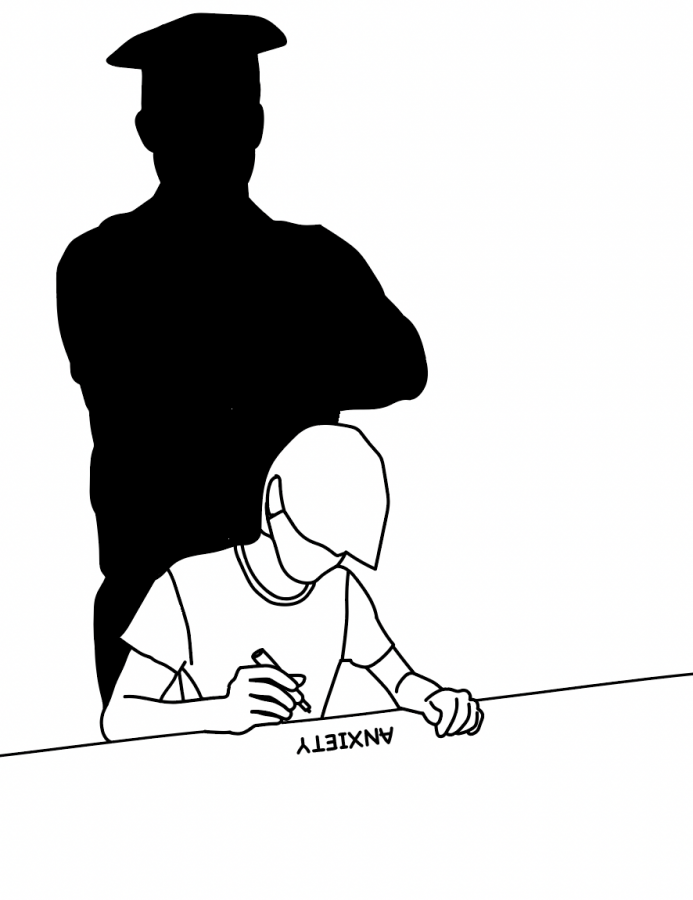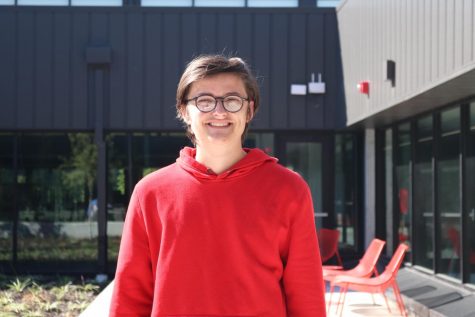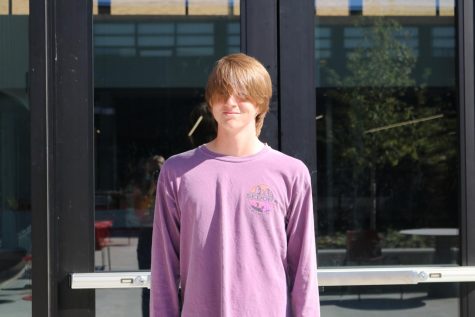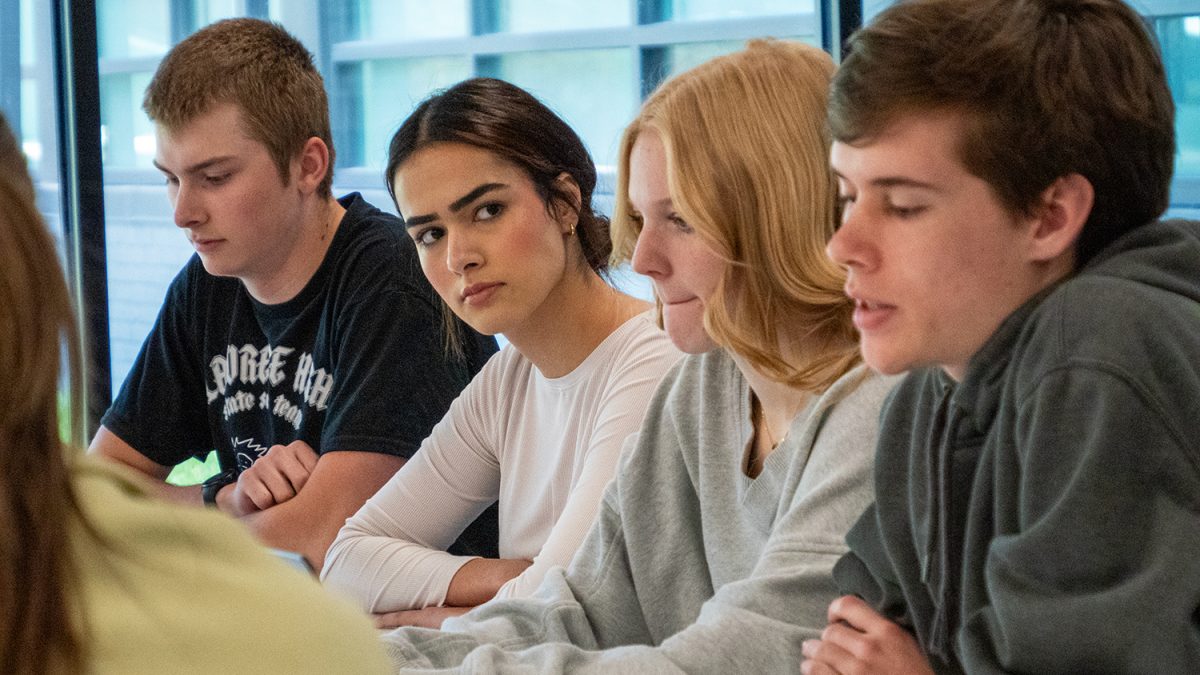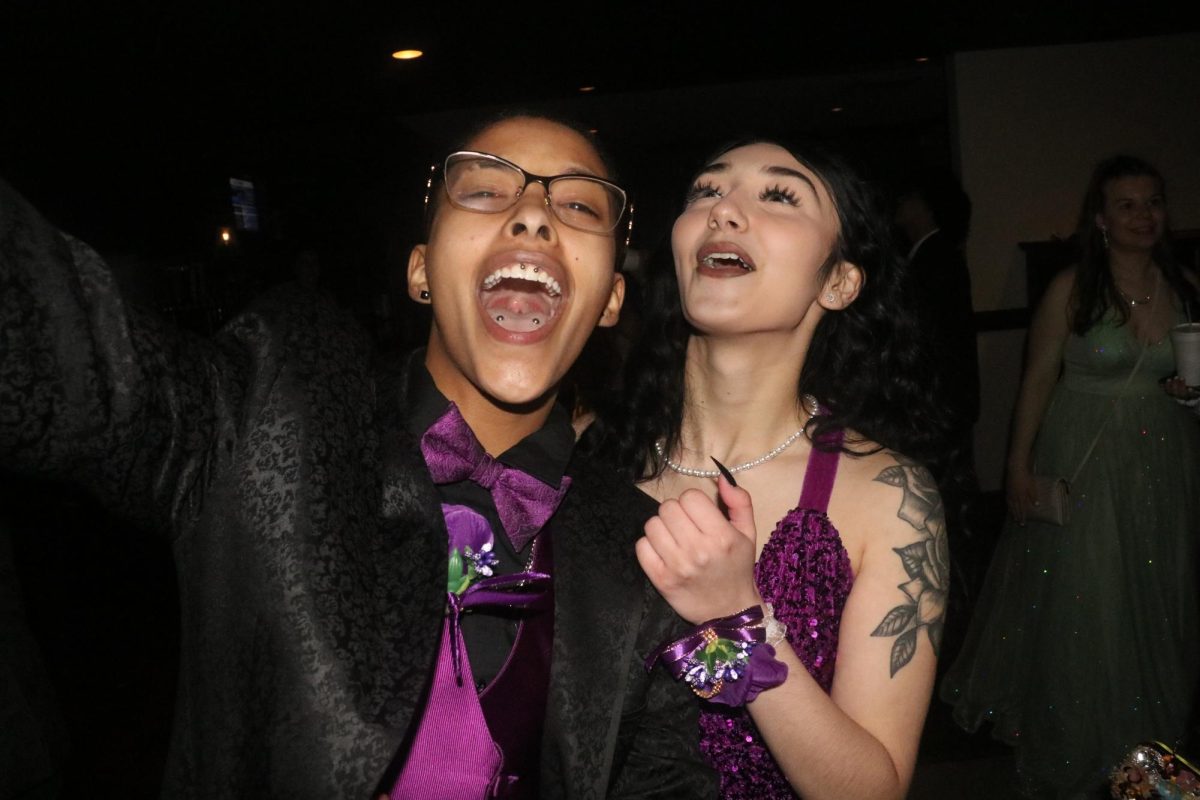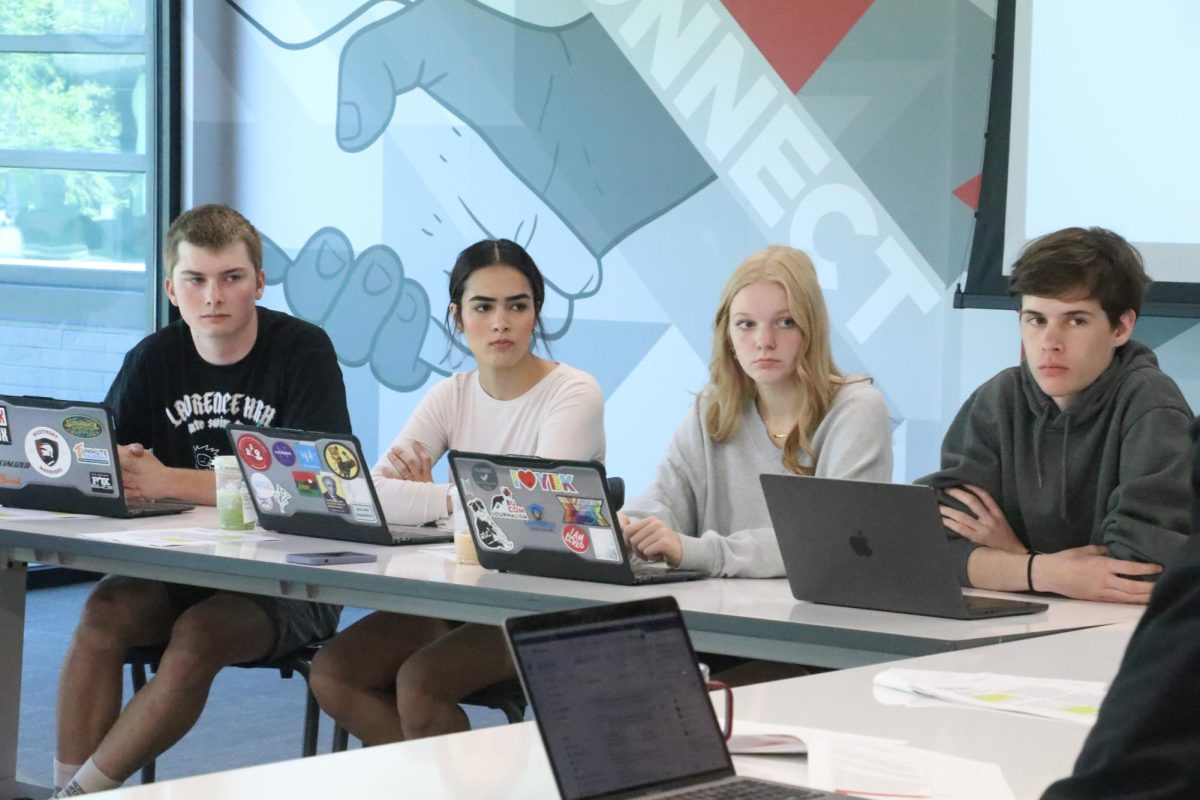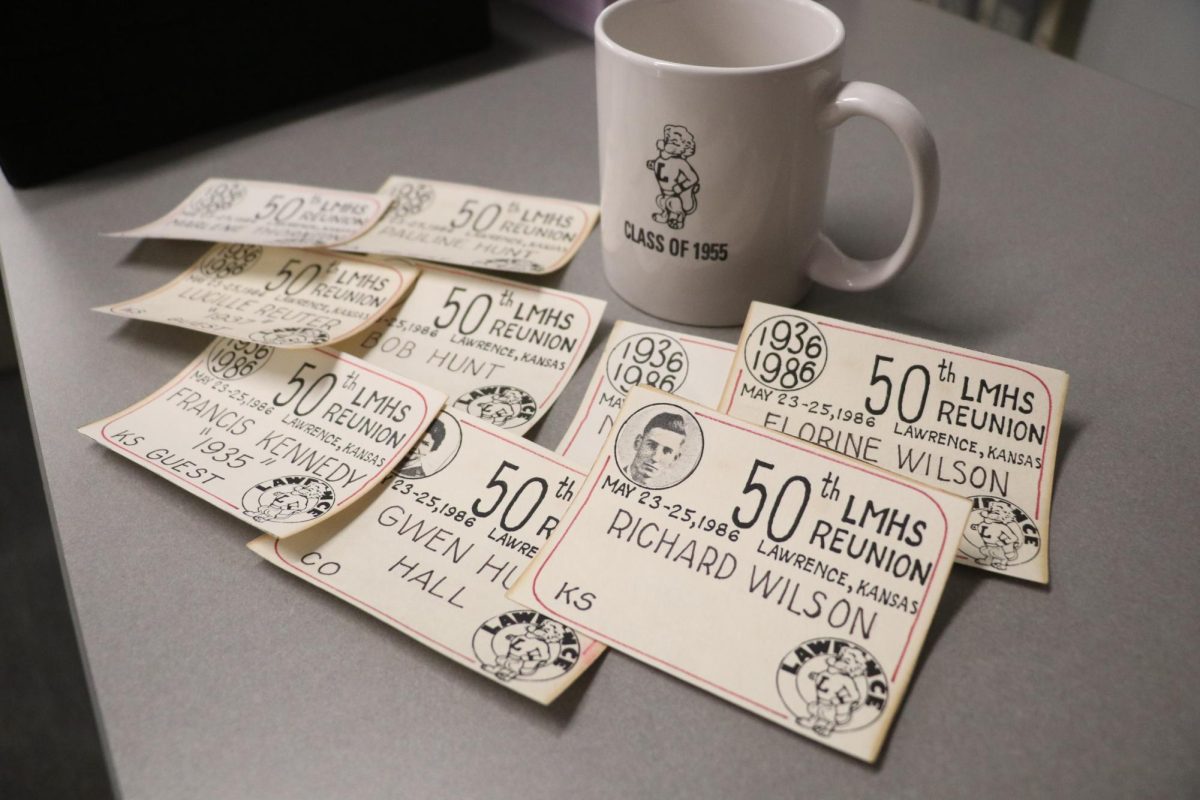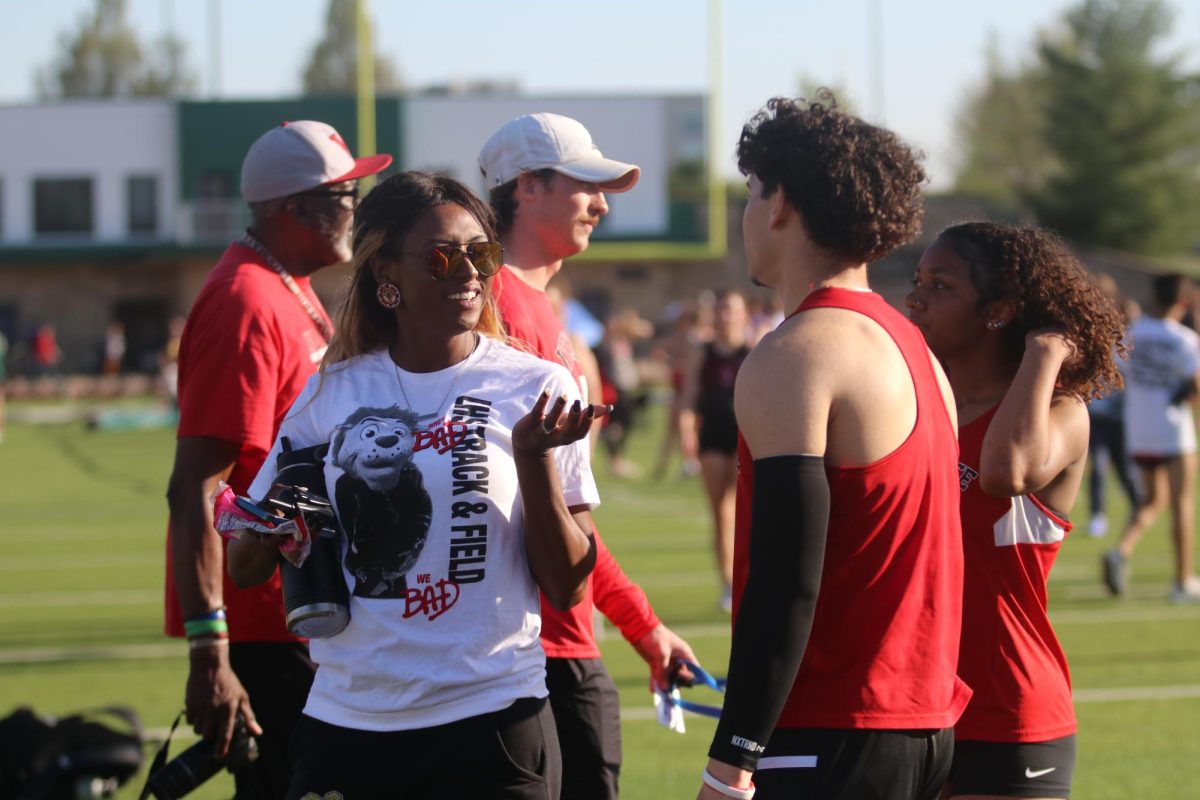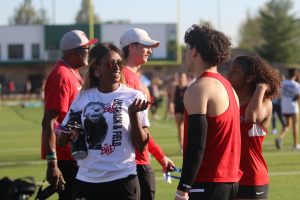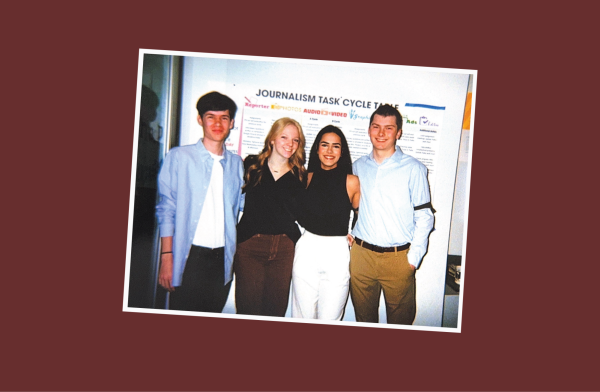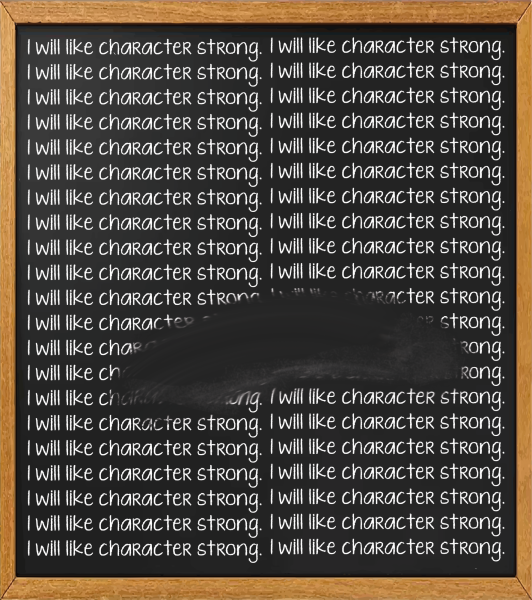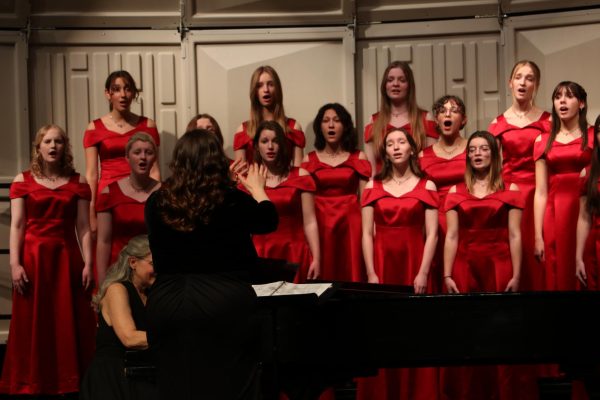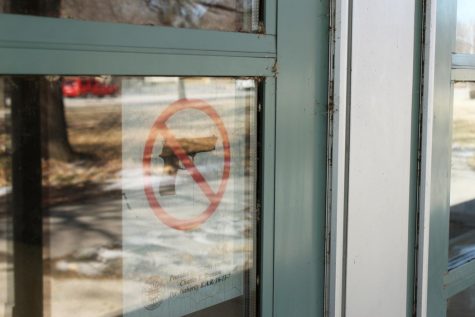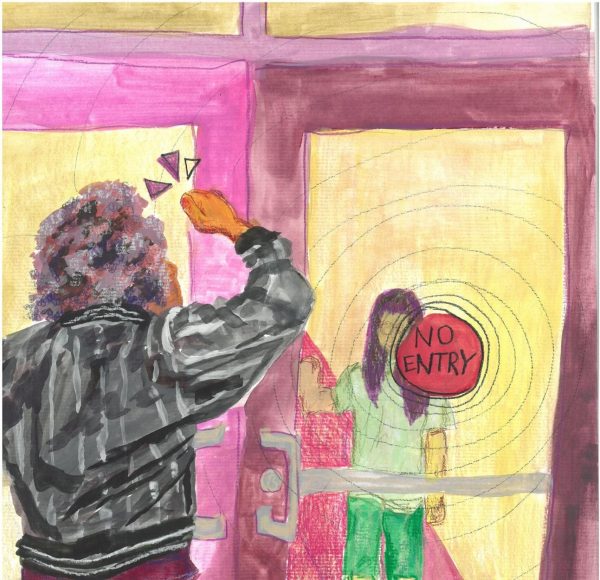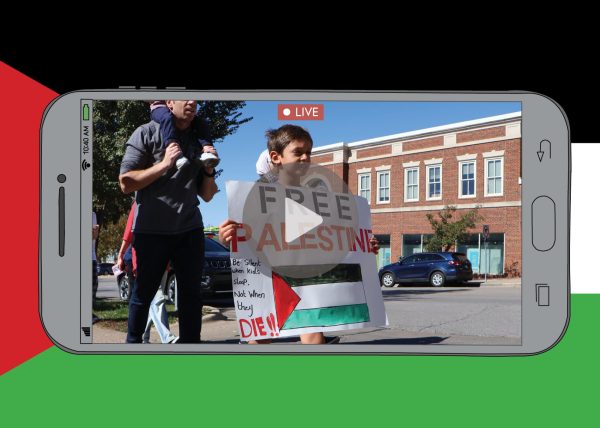It’s time to get the cops out
Why a gun and badge have no place in the halls of LHS
December 17, 2021
Police officers should not be in Lawrence High School.
Uniformed officers cause anxiety among students. They serve no purpose other than intimidation and as a source of terror to discourage or deter crime. This tactic has never worked and will never work. Deterrence isn’t real, and I’m tired of pretending like it is.
When you walk through the doors of Lawrence High School in the morning, you are greeted by a uniformed police officer. His hands rest on his belt, heavy with the weight of his gun in its holster, his taser, and his clinking handcuffs over his back pocket. He wears an armored vest that outlines his silhouette with the menacing bulkiness of his department-issued protection. The glint of his badge catches your eye as you walk past. His radio beeps briefly, and he reaches up to turn it off before resuming his wide stance. He is flanked by another officer and administrative officials. This image will remain in your mind for the rest of the day.
As you continue with your schedule, you are reminded of these officers’ presence. The clunk of their shoes and jingle of their keys are the soundtrack of your algebra class. You pause your work as they walk past, their radio calling out codes that echo through the hallway. Your teacher chuckles, making a remark about the renovated building’s acoustics, and you resume instruction.
While you eat lunch, they are stationed at the exits of the cafeteria. They’ll stop you if you attempt to leave before the 25 minutes is up. When the final bell of the day rings, they’ll see you off into the parking lot. When you walk to your car, you’ll pass their cruisers in the staff parking spaces.
This imagery might make you ask yourself a question that has crossed the minds of several students this year. Am I in a school or a prison? And even more potent: are these officers here to protect me or to intimidate me into staying in line? The answer to that question depends on who you ask.
“It’s just that this is a high school, not a military camp,” senior Tayte Markaloutos said. “I don’t see why armed officers need to be inside the building.”
Students, both past and present, share the sentiment that uniformed police officers are nothing if not anxiety-inducing.
“Their entire presence is meant to criminalize normal student behavior that could easily be corrected by regular staff,” graduate Tony Racy elaborates.
I’ve spent the past year talking to students about their experiences with police officers, largely surrounding the Black Lives Matter movement, as well as conversations with queer, disabled and otherwise marginalized students at both LHS and Free State.
What I generally found across the board is the conclusion that students do not feel more safe due to the presence of police officers at LHS. In fact, LHS students often feel actively uncomfortable or unwelcome in their school due to this presence.
When asked about police officers in schools, Superintendent Dr. Anthony Lewis paints a vastly different picture.
“The district has a strong partnership with the Lawrence Police Department,” Lewis said in an interview last year with The Budget. “Our top priority is to maintain safe learning environments, free from any form of discrimination or harassment.”
Lewis served on the Governor’s Task Force for Racial Equity and Justice, which met in 2020 to discuss law enforcement training and bias protocols across the state. He took the lessons to the district, helping to draft an equity policy the district later passed.
“This new policy speaks to our commitment to educational equity and our plans to apply a systemic change framework to school governance and resource allocation,” Lewis said.
But students have a different perspective. Resource allocation hasn’t seemed to change. Officers still have more equipment than they could ever ask for. The plain and simple truth is that officers do not need vests, weaponry and handcuffs to deal with conflict in schools. In fact, they are rarely involved in day-to-day interactions.
Most of that responsibility falls to the security staff, who have built connections with students on how to healthily resolve conflict. There are no stories circulating the halls about good interactions with the school’s men in uniform, but students frequently swing by to say hello to any number of the security guards in the office.
The reason that students are more comfortable with these folks is that they are actually involved in the school community. If you’ve ever had an interaction with Danny Boone-Salazar, you know that he has genuine concern and care for students. In your first interaction with him, and many of the other security staff, they will ask you your name, and extend an invitation to come down and talk just about any time.
In an ideal world, we can engage in productive work with the rest of the student body and the community to create a culture where no security is required. But until that ideal world exists, the way to deal with threats is not through intimidation. It’s through support for each other. It’s through student-led action, like Can We Talk, the Gender and Sexuality Alliance or the new Sources of Strength suicide prevention program.
While these are necessary steps forward, they require us to cut the weight holding us back. Having uniformed police officers in this space is actively working against our efforts to care for students through the lingering impacts of the pandemic.
So what are we waiting for? An invitation? A sign? We’ve been receiving signs every day. All that’s left is action.
Get the cops out of LHS, and we can begin to build a better future at LHS and beyond.



